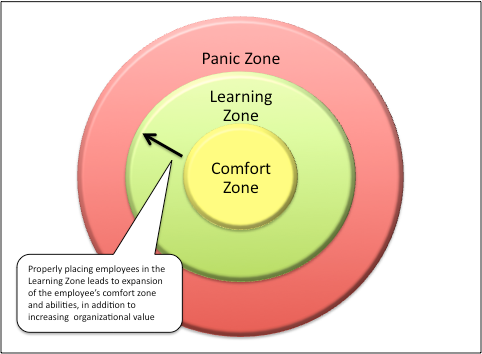
I have learned over the course of my career to really like mistakes. Really. I don’t intentionally try to create them, but I have found them to be very useful in the advancement of my career and in the growth and success of my teams and companies. Failures, on the other hand, are a completely different story.
Failures, by my definition, are mistakes that we repeatedly make and never seem to learn from. Mistakes are one time events that are reviewed, analyzed, and corrected, so that the organization (and individuals) take a negative event and make it into a positive learning experience. This is not an easy thing for an organization to do. Frequently, my first reaction when I encounter one of my team members making a mistake is emotionally based, and I have a strong desire to “punish” the employee who has made the mistake. That’s when I know that I need to step away from the moment briefly and remember that the greatest triumphs in my professional career have occurred because of the mistakes I have made – and learned from.
I’ve made a lot of mistakes (we all have), but I have been blessed to have great mentors, coaches, and teachers that have spent the time to help me understand how the mistake happened, what I did wrong, and how to identify the situation and make the correct choices in the future. Many individuals I know, and most organizations, miss this activity of intentional reflection and analysis. Not having the discipline to review and analyze the mistake and instead punishing or criticizing the “offender” sets a dangerous cycle within the organization. The employee who erred is discouraged, and because the event goes undiagnosed, the organization has now set itself up for the mistake to potentially be repeated – a true failure situation.
Organizations have to break out of this cycle, setting up their employees to get out of their comfort zones. This is where breakthrough performance is generated; and it’s also where a lot of mistakes will occur. Noel Tichy, professor at the University of Michigan business school and former chief of General Electric’s Crotonville management development center, identifies three zones – the comfort zone, the learning zone, and the panic zone. See figure 1 below.
Figure 1: PROFESSIONAL WORK ZONES
As leaders we can minimize mistakes by keeping our team members (and ourselves) in the comfort zone. But what we’ll do in the process is stunt learning and growth, and we’ll limit the positive impacts to our organization. But what about that outer zone, the panic zone? This is where organizations can also get it wrong. In the zeal to get their team members out of their comfort zones, managers often swing the pendulum too far the other way, and plop their team members into a panic zone. At Credera, we call this “setting up people to fail”, by placing them in situations where they either have no reasonable chance at success or no opportunities to safely make mistakes that can be analyzed and learned from.
If we accept that mistakes will occur and that these mistakes can be made into positive learning experiences, then we can unlock the amazing potential within our team members, ourselves, and our organizations. Doing so also enables each of us to grow each of the concentric circles, expanding the comfort zone and extending the learning zone beyond their initial size.
For additional thoughts on how Credera can help your organization transform into a culture of high performance, check out our Organizational Change Management and Strategic services.
Contact Us
Let's talk!
We're ready to help turn your biggest challenges into your biggest advantages.
Searching for a new career?
View job openings